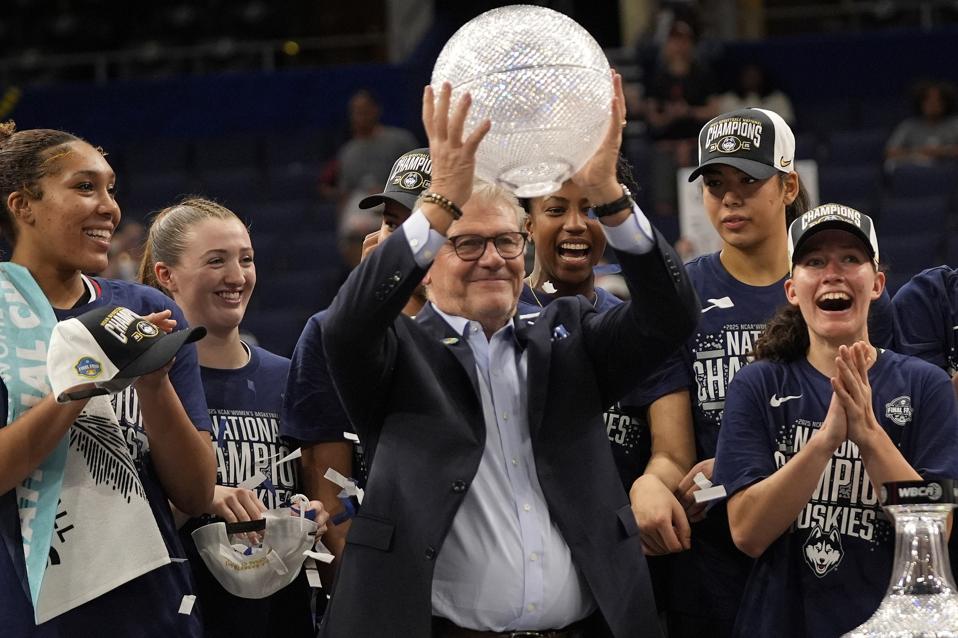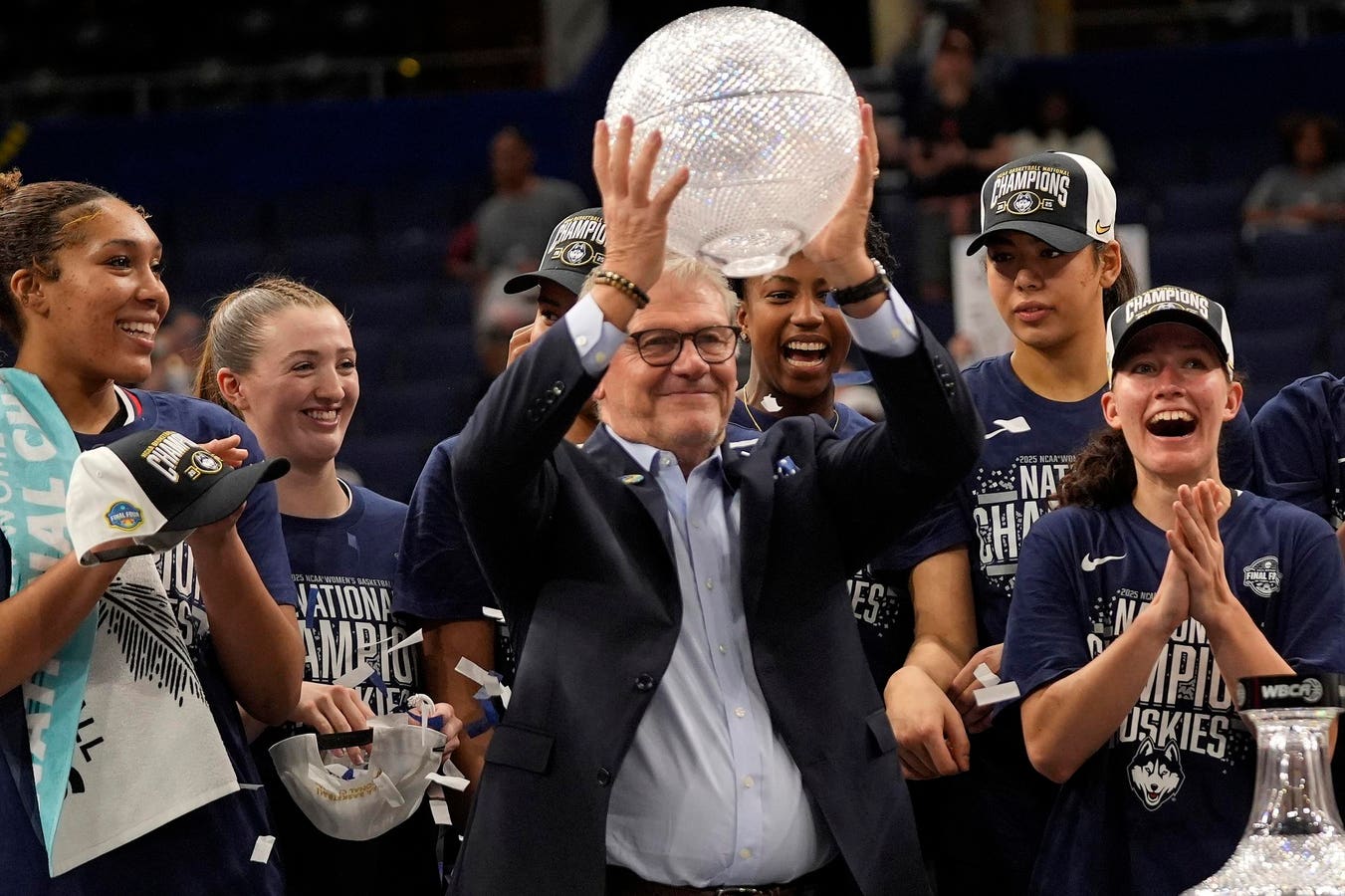
UConn head coach Geno Auriemma, center, holds up the coaches’ trophy after the Huskies defeated South Carolina in the national championship game at the Final Four of the women’s NCAA college basketball tournament, Sunday, April 6, 2025, in Tampa, Fla. (AP Photo/Chris O’Meara)
Copyright 2025 The Associated Press. All rights reserved.
After recently contemplating expanding the NCAA men’s and women’s basketball tournament fields starting in 2026, the events will continue to have 68 teams next year. However, Dave Gavitt, the NCAA’s senior vice president of basketball, said in a statement on Monday that the organization’s tournament committees will continue having conversations about increasing the events to 72 or 76 teams beginning in 2027.
The men’s tournament has had 68 teams since 2011 when the NCAA introduced the “First Four” games where eight teams play each other on a Tuesday in March. The winners are slotted into the 64-team bracket, which begins two days later. The tournament previously had 65 teams since 2001.
The women’s tournament, meanwhile, had 64 teams from 1994 through 2021. It has featured 68 teams the past four seasons.
Gavitt’s announcement on Monday occurred less than a month after he said on July 10 that it was “still viable” that the tournament could expand to 72 or 76 teams next year. He added at the time that the NCAA Division 1 men’s basketball committee met that week in Savannah, Ga., while the women’s basketball committee gathered in Philadelphia. While both groups discussed expansion, Gavitt said “no decision or recommendation was made.”
Charlie Baker, the NCAA’s president and former Massachusetts governor, told reporters at a Big 12 Conference meeting in May that the NCAA was having “good conversations” with CBS Sports and Turner Sports, which televise the men’s tournament, and ESPN, which airs the women’s tournament. Baker, though, said that there is “a lot of logistical work” that goes into expanding the tournament.
As it currently stands, the postseason champions of each of the 31 Division 1 men’s and women’s conferences earn a berth in the NCAA tournament, while the other 37 slots are chosen by a selection committee. Most of the at-large berths come from the so-called Power Four conferences of the Big 12, Big Ten Conference, Atlantic Coast Conference and Southeastern Conference, as well as the Big East Conference.
For instance, only four men’s teams (New Mexico, San Diego State, Utah State and Saint Mary’s) and three women’s teams (Richmond, Columbia and Princeton) outside of those five leagues received at-large berths in this year’s tournament. None of those six teams made it past the second round.
While the expansion could lead to more teams outside of the power conferences getting tournament bids, the committee could also continue to reward teams from the major leagues that finish in the middle or near the lower half of their conference standings. Those details will be ironed out over the coming months and years, but the fields will remain at 68 teams, at least for one more year. The 2026 NCAA men’s tournament begins on March 17 and concludes with the national title game on April 6 in Indianapolis, while the women’s tournament starts on March 18 and ends with the championship on April 5 in Phoenix.
Florida is the reigning men’s national champion, overcoming a 12-point second half deficit and defeating Houston, 65-63, in the national title game. The Gators return a few players, including forwards Alex Condon (10.6 points and 7.5 rebounds in 24.9 minutes per game last season) and Thomas Haugh (9.8 points and 6.1 rebounds in 24.4 minutes per game), and add several newcomers, including transfer guards Xaivian Lee (Princeton) and Boogie Fland (Arkansas). Lee averaged 16.9 points, 6.1 rebounds and 5.5 assists per game as a junior last season, while Fland averaged 13.5 points and 5.1 assists per game as a freshman last season even though he missed about two months after undergoing surgery on his right thumb.
Meanwhile, the University of Connecticut won the women’s national title in April, defeating South Carolina, 82-59, in the final. The Huskies return three starters in forward Sarah Strong (16.4 points and 8.9 rebounds per game last season), guard Azzi Fudd (13.6 points per game) and center Jana El Alfy (5.0 points and 5.1 rebounds per game). They also signed transfers Kayleigh Heckel, a guard who averaged 6.1 points per game as a USC freshman last season, and forward Serah Williams, an incoming senior who averaged 19.2 points and 9.8 rebounds per game last season at Wisconsin. Williams was a first team All-Big Ten selection the past two seasons.

